Abstract
Cell-free supernatants from cultures of Torulopsis glabrata contained glycoprotein toxins that killed sensitive and killer strains of Saccharomyces cerevisiae with single-hit kinetics. Growing S. cerevisiae treated with the toxins showed a leakage of cellular potassium, partial dissipation of the adenosine triphosphate pool, and a coordinate shutdown of macromolecular synthesis. These pool efflux-stimulating toxins have been partially purified and at least three toxic glycoproteins have been separated. Pool efflux-stimulating toxin activity was stable from pH 3 through 7, though killing was maximal close to pH 4.
Full text
PDF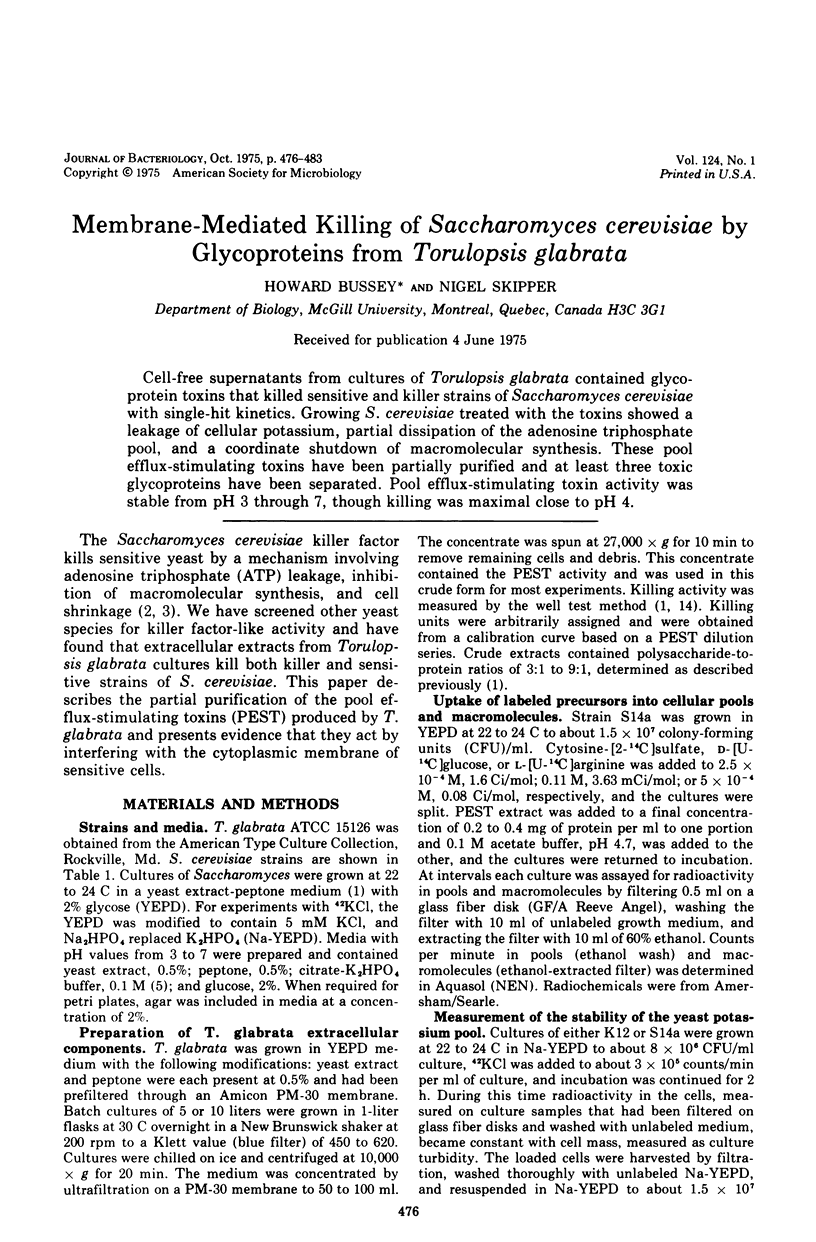
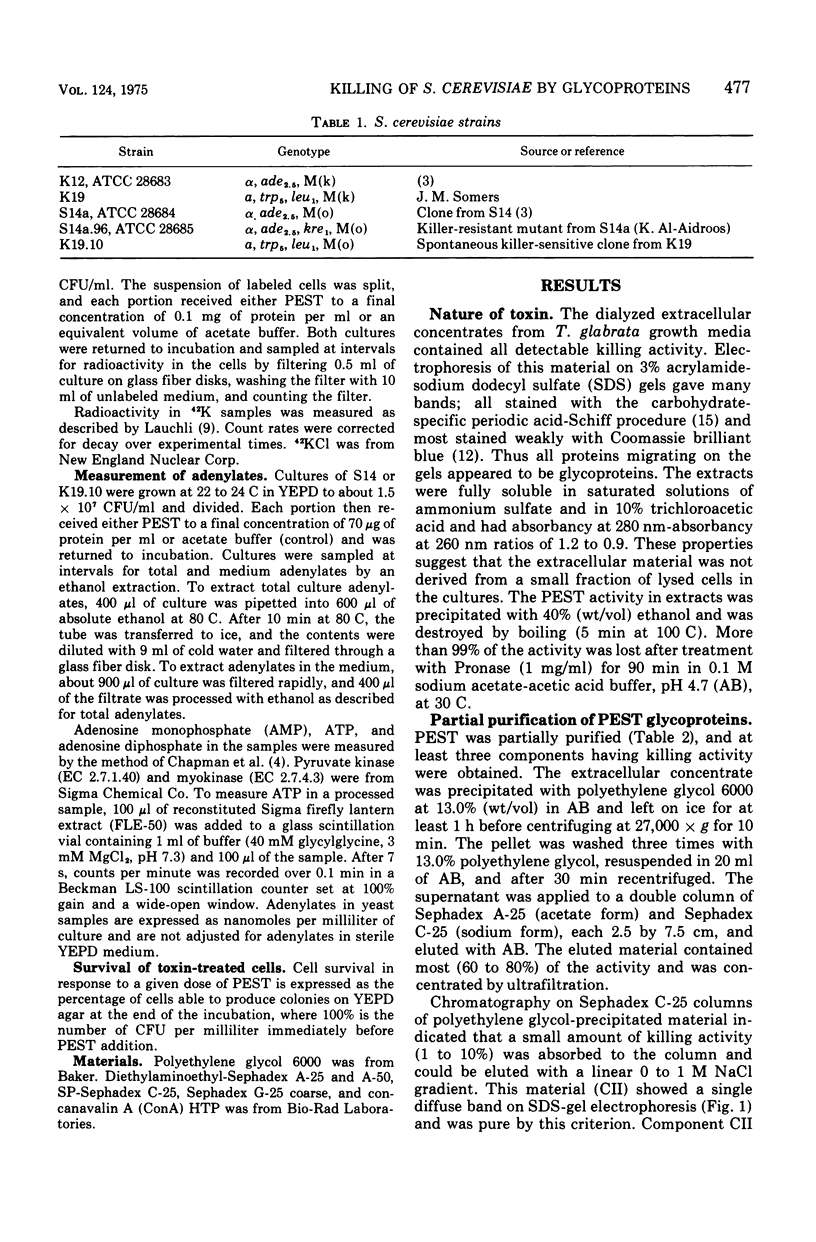
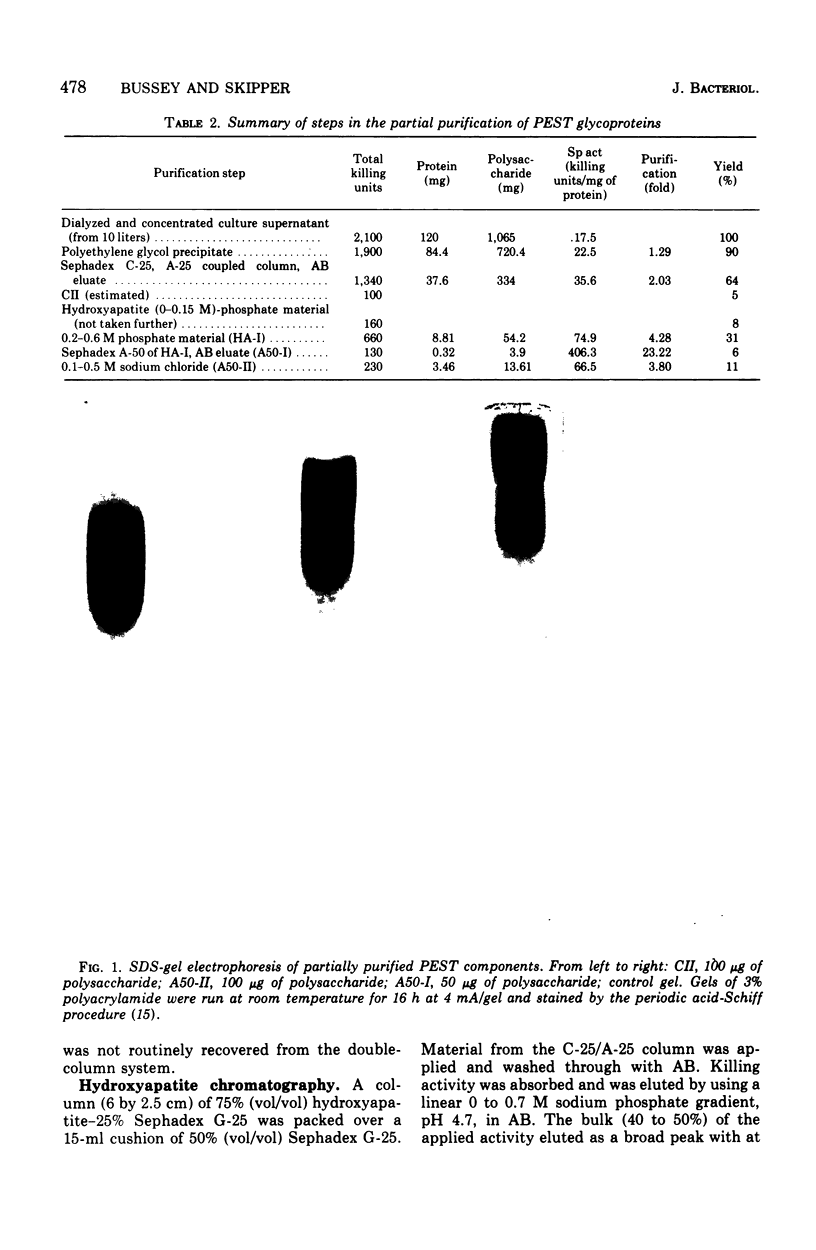
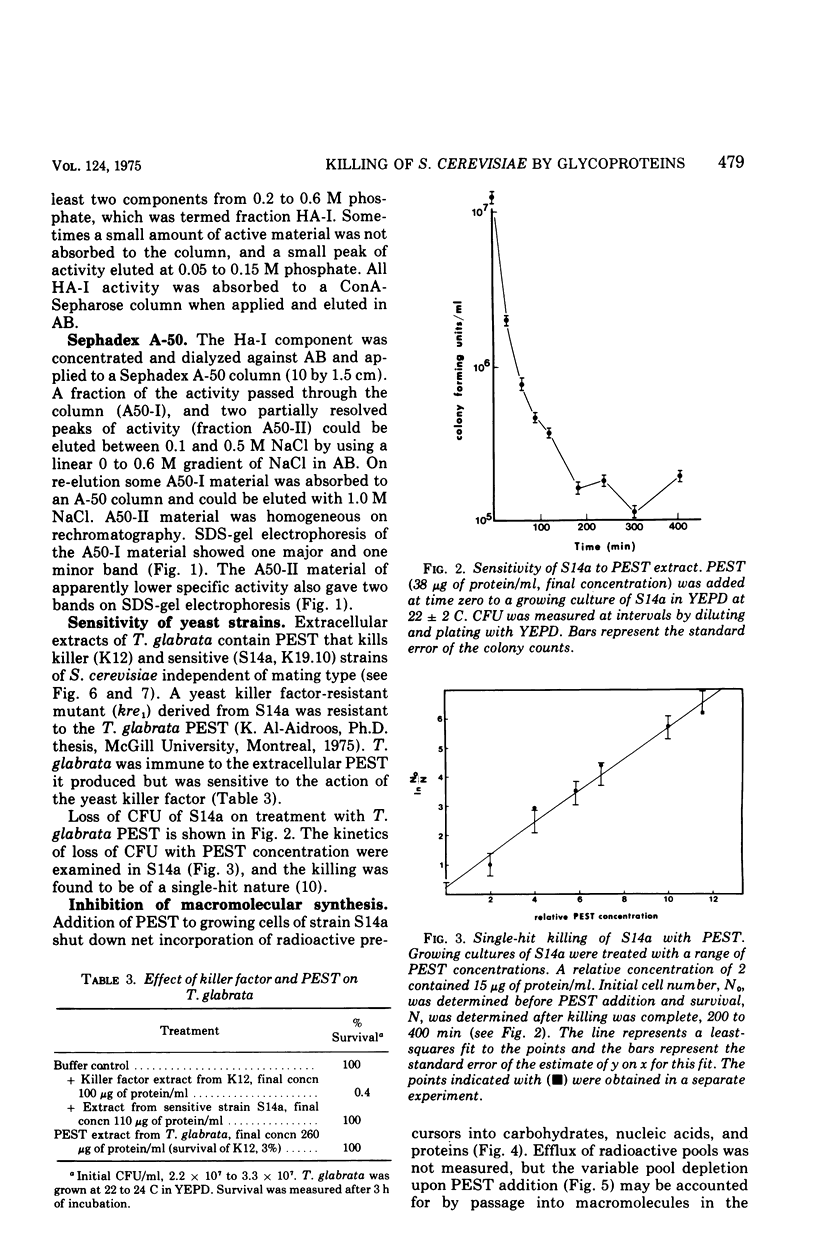
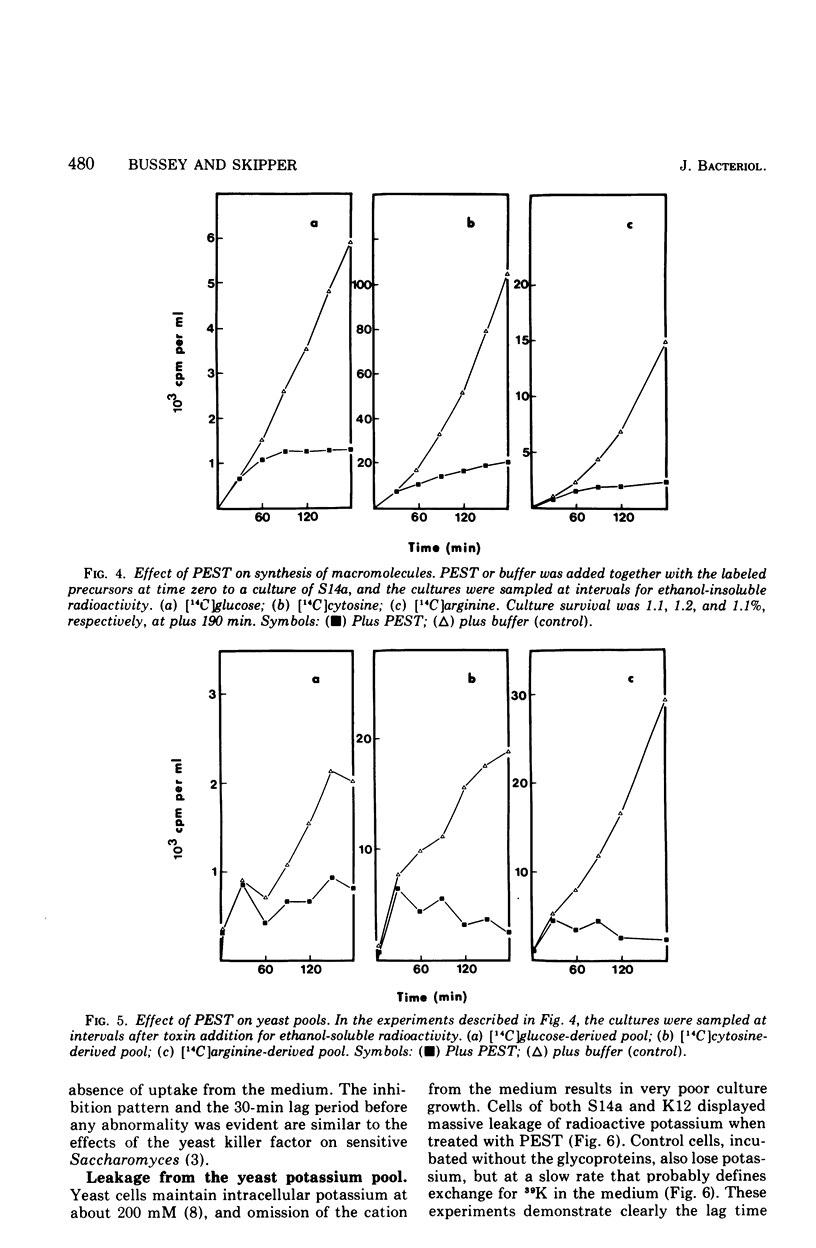
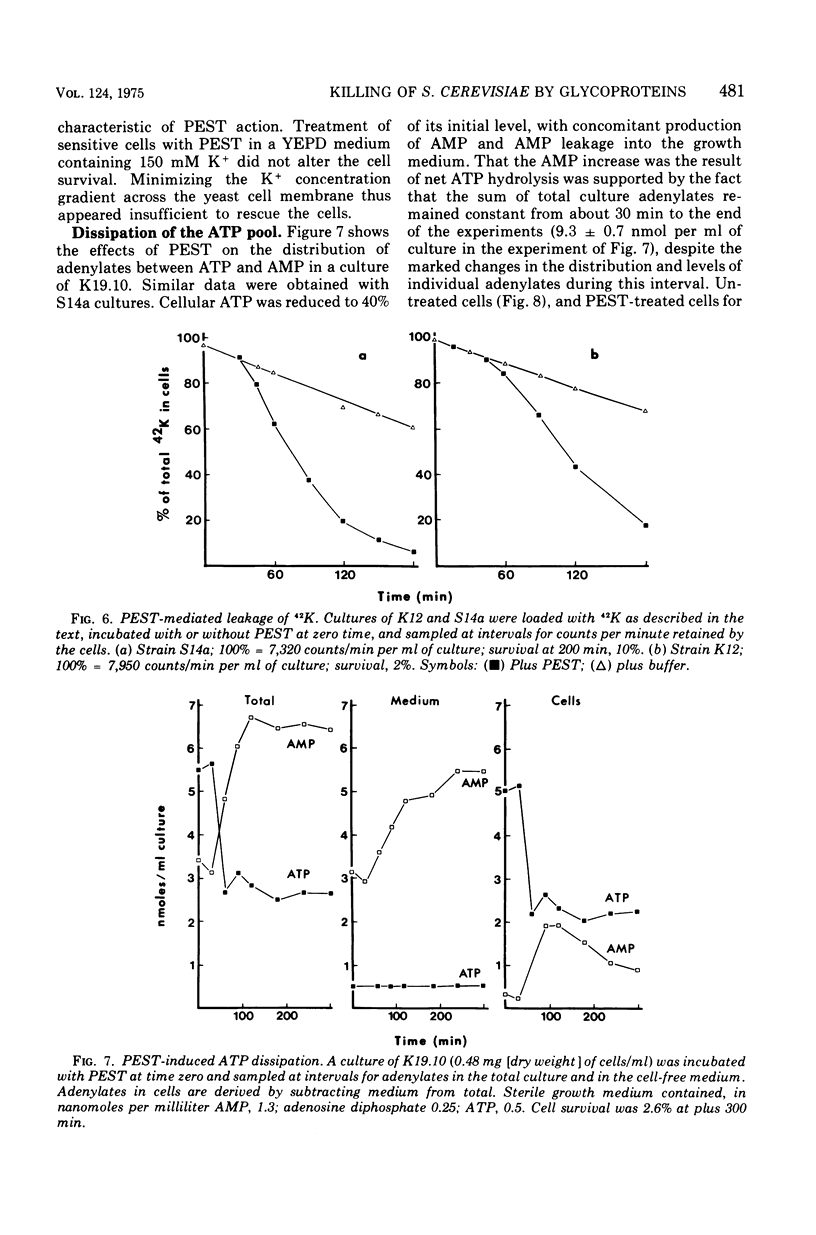
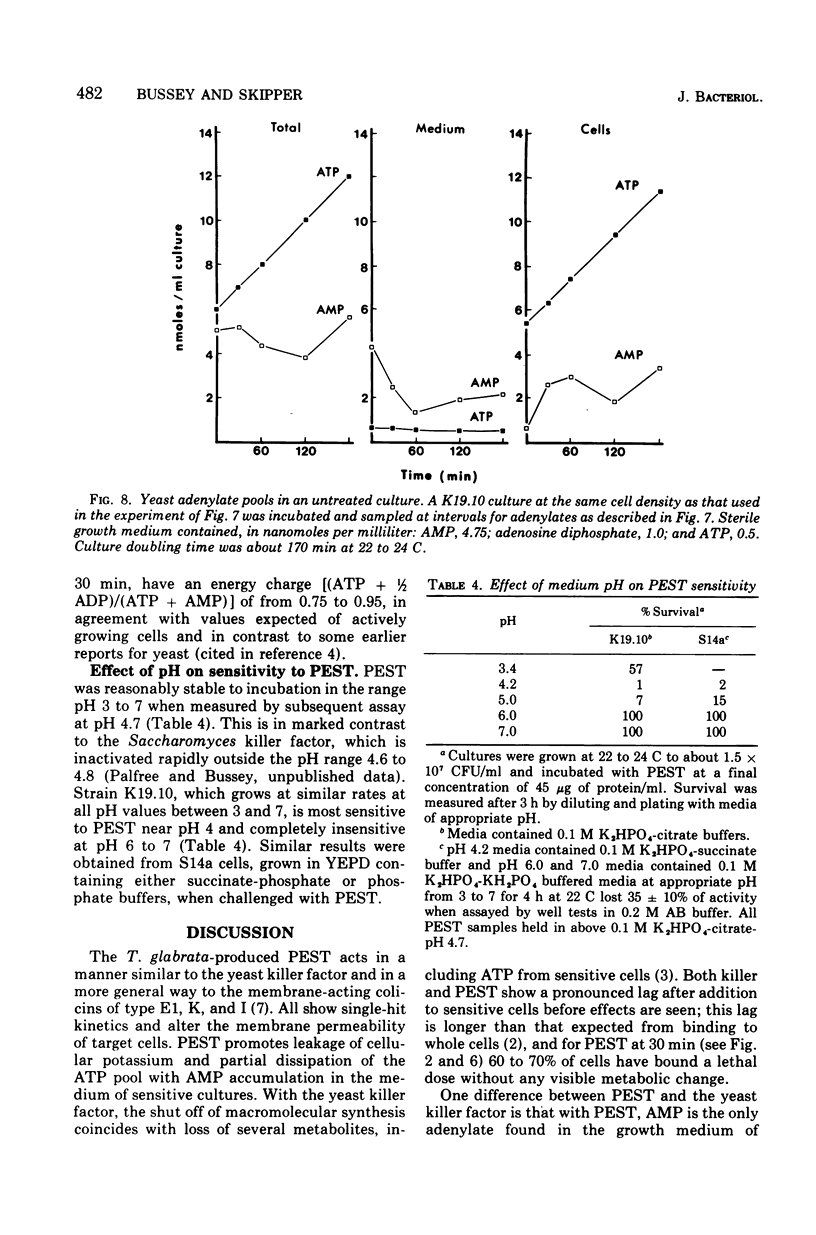
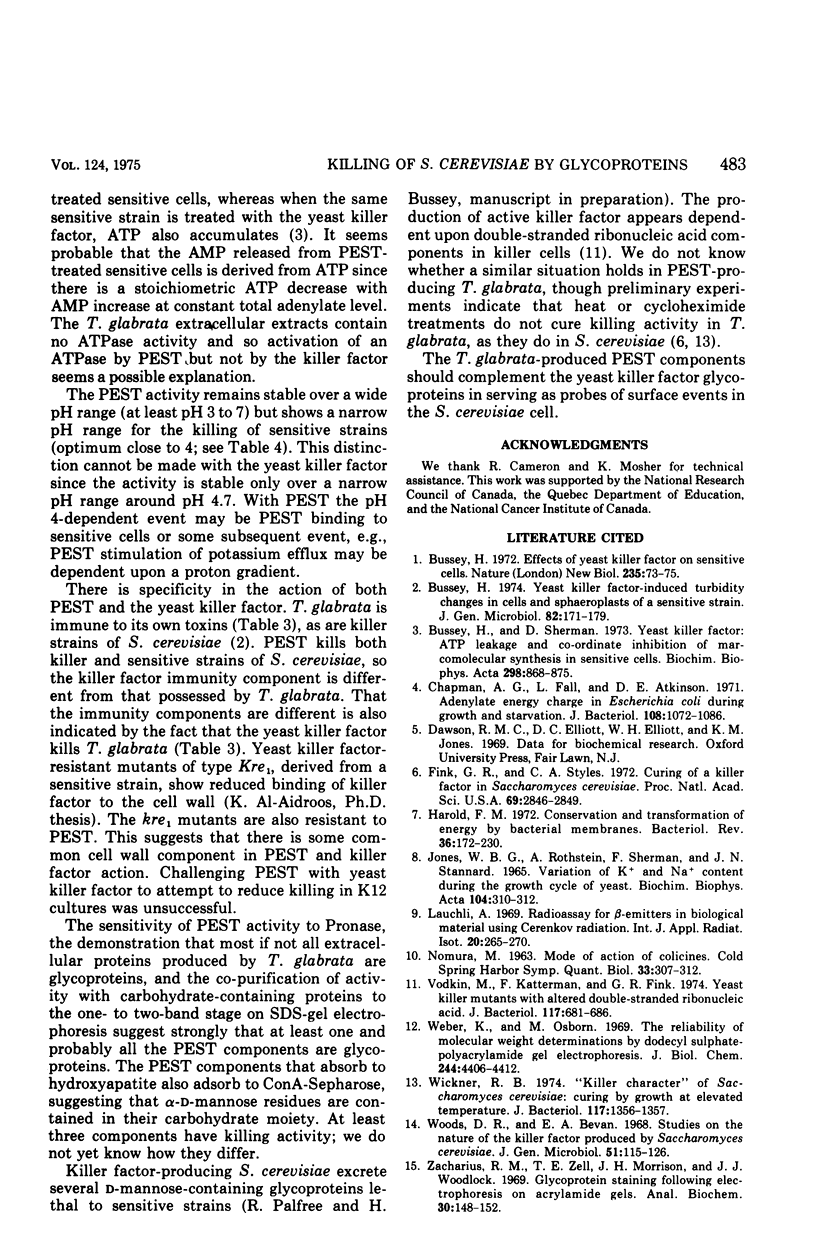
Images in this article
Selected References
These references are in PubMed. This may not be the complete list of references from this article.
- Bussey H. Effects of yeast killer factor on sensitive cells. Nat New Biol. 1972 Jan 19;235(55):73–75. doi: 10.1038/newbio235073a0. [DOI] [PubMed] [Google Scholar]
- Bussey H., Sherman D. Yeast killer factor: ATP leakage and coordinate inhibition of macromolecular synthesis in sensitive cells. Biochim Biophys Acta. 1973 Apr 16;298(4):868–875. doi: 10.1016/0005-2736(73)90391-x. [DOI] [PubMed] [Google Scholar]
- Chapman A. G., Fall L., Atkinson D. E. Adenylate energy charge in Escherichia coli during growth and starvation. J Bacteriol. 1971 Dec;108(3):1072–1086. doi: 10.1128/jb.108.3.1072-1086.1971. [DOI] [PMC free article] [PubMed] [Google Scholar]
- Fink G. R., Styles C. A. Curing of a killer factor in Saccharomyces cerevisiae. Proc Natl Acad Sci U S A. 1972 Oct;69(10):2846–2849. doi: 10.1073/pnas.69.10.2846. [DOI] [PMC free article] [PubMed] [Google Scholar]
- Harold F. M. Conservation and transformation of energy by bacterial membranes. Bacteriol Rev. 1972 Jun;36(2):172–230. doi: 10.1128/br.36.2.172-230.1972. [DOI] [PMC free article] [PubMed] [Google Scholar]
- Jones W. B., Rothstein A., Sherman F., Stannard J. N. Variation K+ and Na+ content during the growth cycle of yeast. Biochim Biophys Acta. 1965 Jun 15;104(1):310–312. doi: 10.1016/0304-4165(65)90257-6. [DOI] [PubMed] [Google Scholar]
- Läuchli A. Radioassay for beta-emitters in biological materials using Cerenkov radiation. Int J Appl Radiat Isot. 1969 Apr;20(4):265–270. doi: 10.1016/0020-708x(69)90054-4. [DOI] [PubMed] [Google Scholar]
- Vodkin M., Katterman F., Fink G. R. Yeast killer mutants with altered double-stranded ribonucleic acid. J Bacteriol. 1974 Feb;117(2):681–686. doi: 10.1128/jb.117.2.681-686.1974. [DOI] [PMC free article] [PubMed] [Google Scholar]
- Weber K., Osborn M. The reliability of molecular weight determinations by dodecyl sulfate-polyacrylamide gel electrophoresis. J Biol Chem. 1969 Aug 25;244(16):4406–4412. [PubMed] [Google Scholar]
- Wickner R. B. "Killer character" of Saccharomyces cerevisiae: curing by growth at elevated temperature. J Bacteriol. 1974 Mar;117(3):1356–1357. doi: 10.1128/jb.117.3.1356-1357.1974. [DOI] [PMC free article] [PubMed] [Google Scholar]
- Woods D. R., Bevan E. A. Studies on the nature of the killer factor produced by Saccharomyces cerevisiae. J Gen Microbiol. 1968 Apr;51(1):115–126. doi: 10.1099/00221287-51-1-115. [DOI] [PubMed] [Google Scholar]
- Zacharius R. M., Zell T. E., Morrison J. H., Woodlock J. J. Glycoprotein staining following electrophoresis on acrylamide gels. Anal Biochem. 1969 Jul;30(1):148–152. doi: 10.1016/0003-2697(69)90383-2. [DOI] [PubMed] [Google Scholar]



